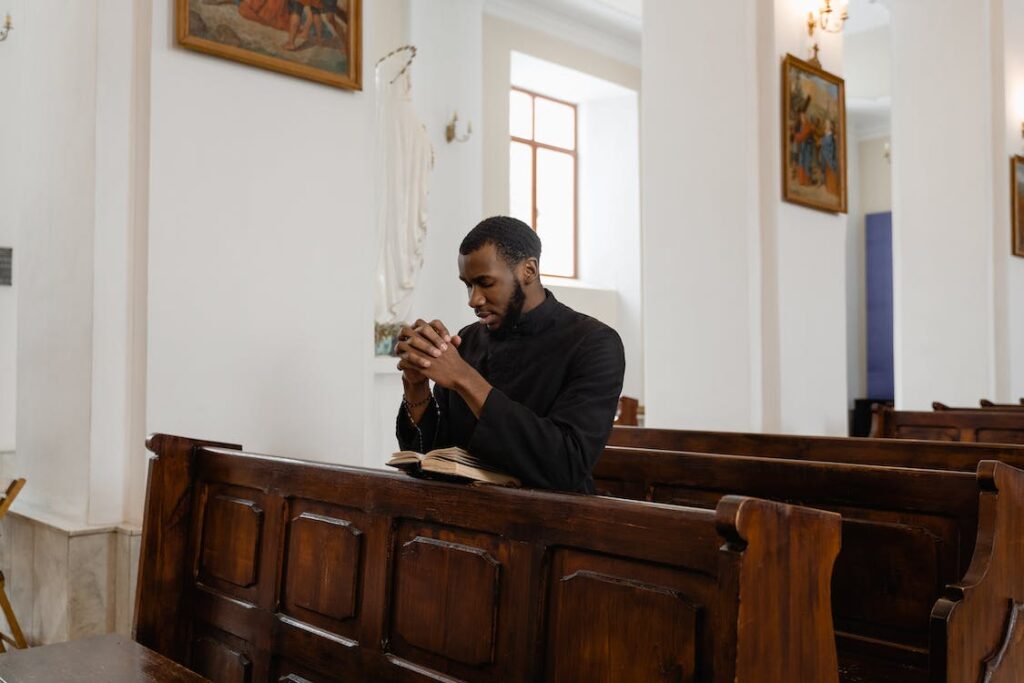
According to The Hill, in-church attendance dropped by 45 percent during the pandemic. But that only tells part of the story. Since the 1990s, church attendance has been falling, and the pandemic merely accelerated the trend.
And, while life has largely returned to normal, church attendance has not returned to normal. So, why have Americans, specifically teens and adults, stopped going to church?
According to the Barna Research’s State of the Church 2020 survey, only one in four Americans identifies as a practicing Christian. This figure has plummeted in the past 20 years, as the 2000 version of the survey found that 45% of Americans identified as practicing Christians.

Of those who fell away from the church, 43% still self-identified as Christian, though they stopped regularly practicing their faith. But a large percentage moved away from faith completely, identifying as non-Christian or atheist/agnostic.
This decline in the number of actively practicing Christians has had a significant impact on church attendance. According to Barna’s research, church attendance has fallen 36% since 1993. Digging deeper into these figures shows that the overall decline is fueled by lower attendance by younger churchgoers – those in the Gen-X, Millennial, and Gen-Z categories. But why have these younger Christians stopped going to church?
To get more insight into the reasons why church attendance has declined for younger Christians, Barna Group President David Kinnaman conducted a series of national surveys, interviewing both teens and young adults and their pastors. One main reason cited by many younger Christians is a disconnect between their faith and their day-to-day life.
Many young Christians feel little or no connection to their faith. In the survey, 24% of respondents said that “faith is not relevant to my career or interests” and 20% said that “God seems missing from my experience in church.”
In addition, many of these same young respondents felt that the church itself was not welcoming, especially to those who are uncertain of their own faith. They felt that they were unable to ask important questions about life in their church and that they felt unable to express doubts about church teachings that they did not understand.
Further, many of these young people struggled with the perception that church teachings did not align with their own personal experiences.
For example, many survey respondents were troubled by a perceived conflict between science and faith. Nearly three out of 10 respondents (29%) stated that they felt that “churches are out of step with the scientific world we live in.” Nearly a quarter viewed the church as anti-science and that they were turned off by the debate between evolution and creationism.

But science wasn’t the only topic where respondents perceived a disconnect between their faith and their daily life. Many respondents felt that the church’s view of sexuality as simplistic or judgmental. Forty percent of respondents said that they felt the church’s views on sexuality and birth control were out of date, and one in six said that they felt judged by the church for their personal actions.
But philosophical issues are not the only reasons that young people have stopped attending church. Many cite practical reasons as well.

Another study, this one from Lifeway Research, strove to take a deep dive into the various reasons why church attendance had dropped, especially among younger Christians. In addition to political and social issues, the survey found that young people had trouble balancing everyday life with church attendance.
Over one third of respondents (34%) said that they stopped attending church when they moved away to college. In this case, they might have had trouble finding a parish where they felt welcomed and comfortable, or they may have felt overwhelmed by their new school and life responsibilities and church fell by the wayside.
For slightly older respondents, nearly one quarter (24%) stated that their work responsibilities kept them from attending church. While many of these respondents stated that they only planned to take a break in church attendance, often, this break ended up lasting longer than anticipated.
While many young people have political, social, or life-altering reasons to stop attending church, many cite smaller, more personal reasons for their decision. A Lifeway study helped give context to some of these reasons.
Twenty-nine percent of respondents said they didn’t feel connected to the people in their church, while 23% said they never connected to the ministry in the first place. Others said they simply wanted a break from church or that they only attended to please others.
The studies all agree. Church attendance is down, and it has been trending down for decades now. The reasons vary, from political to personal, and this variety of reasons presents a challenge for pastors and communities that want to reverse the trend. Still, understanding why attendance is down is the first step and, if parishes have the time and resources to address these issues through communication, it’s possible to reverse this trend.
At First UMC, we understand that young adults have unique needs that can shift from decade to decade. In Fairfield County, challenges that stem from the cost of living, peer pressure, social media, work environments, and dating can create anxiety, stress, mental health and spriritual struggles.

While these struggles are not new, they are unique for each person and generation. The church has always been a place where you can find your voice, share your conerns, and experience comfort and support when life gets overwhelming.
Our programs are designed to create a safe space for people at all stages of life to experience the love of God and one another through worship, volunteering, community dinners, bibles studies, music and so much more! Please contact us with your thoughts about the needs of young adults in our community.
Sources:
Also, Barna research, https://www.barna.com/i



Copyright © 2023, FUMC. All Rights Reserved.
Developed and Designed by New Revenue Consulting LLC.